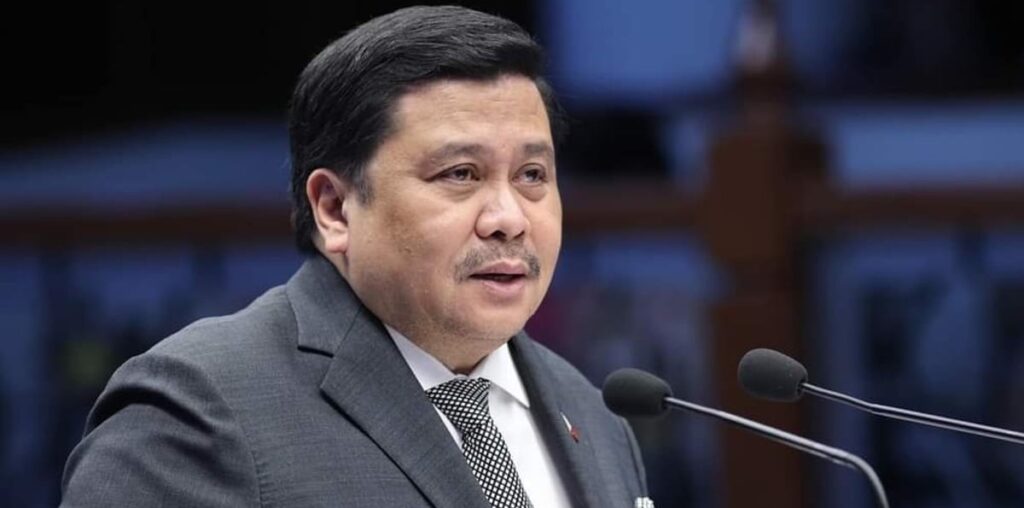The Philippine defense sector must prepare the country’s first responders against chemical attacks, Senate President Pro Tempore Jinggoy Ejercito Estrada said Tuesday, as he pushed for allocating a budget for countering weapons of mass destruction operations.
Estrada made the recommendation as the Senate approved the P265.98 billion proposed budget of the Department of National Defense (DND) for 2025. He noted the lack of allocation in the proposed P6.352 trillion national budget for countering mass casualty threats involving chemical, biological, radioactive, and nuclear (CBRN) incidents.
Estrada emphasized the need to enhance the military’s capacity in case of violent events, such as chemical terror attacks, in the Philippines.
“Do you think the Philippines is well prepared for any eventuality?” Estrada asked Senator Ronald dela Rosa, who was defending the defense sector’s budget.
In response, Dela Rosa cited the 1995 Tokyo subway sarin gas attack by Aum Shinrikyo cult members, which killed 13 people and injured over a thousand others. Victims suffered from temporary vision problems, paralysis, and in some cases, permanent damage.
On 6 November, Estrada sponsored Senate Bill 2871, or the proposed Chemical Weapons Prohibition Act, which seeks to outlaw activities related to the use and manufacture of chemical weapons. He pressed for additional funding to address CBRN threats, saying,
“If this will not be funded, the bill which I already sponsored on the floor, mababalewala ito. I just hope and pray na wala naman mangyayaring ganito sa ating bansa today and in the near future.”
Estrada lamented that the Philippines has yet to fulfill its obligations under the 1993 Chemical Weapons Convention (CWC) three decades after becoming a signatory.
“This Senate concurred in the ratification of the CWC but we have not approved the national legislation needed to fully implement the provisions of this important international treaty,” he said.
He further pushed for the enactment of SB 2871, which defines offenses, sets penalties, and outlines enforcement procedures for the chemical industry as required under the CWC.
Estrada also called for upgrading the Armed Forces of the Philippines (AFP) Medical Center, still widely known as V. Luna General Hospital, to provide comprehensive tertiary health care for active-duty soldiers. Despite allocating 75 percent of its estimated annual income of P100 million for its operations, Estrada said the hospital remains inadequately equipped with essential medical machines and equipment.
He expressed willingness to propose amendments to the AFP’s budget to allocate additional funds for improving V. Luna Hospital.

